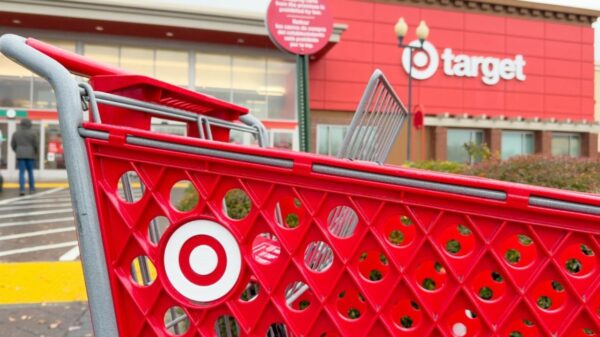When you’re feeling tired and in need of a quick pick-me-up, energy drinks may seem like the perfect solution. However, these beverages may actually do more harm than good. Marketed as a way to boost energy and fight fatigue, energy drinks can lead to negative health effects such as dehydration, anxiety, and insomnia.
In this article, you’ll learn about the potential risks of energy drinks and discover safer and more effective ways to combat fatigue. From getting quality sleep to staying hydrated, there are plenty of alternatives to energy drinks that can help you feel more energized and focused throughout the day. So, next time you’re tempted to reach for an energy drink, read on to find out what’s really in these beverages and why they may not be the best choice for your health.
What are energy drinks?
Energy drinks are beverages that are designed to provide a quick boost of energy. They are different from sports drinks in that they contain high levels of stimulants, such as caffeine. Popular energy drinks include Red Bull, Monster, VPX, Rockstar, Reign, and Bang. These drinks have become popular for their stimulant effect, but they may come with harmful side effects.
What ingredients are typically found in energy drinks?
The main active ingredient in energy drinks is caffeine. However, they usually contain other ingredients known to have stimulant effects. Here are some of the active ingredients found in energy drinks:
- Taurine: This is a sulfur-containing amino acid that is usually consumed through common foods like eggs, meat, and seafood. It has been reported to possibly improve exercise capacity.
- Glucuronolactone: This is a naturally occurring substance made in small amounts in the body. However, little is known about its effects on the body.
- B vitamins: These vitamins are key in many different cellular functions in our body. They are thought to help energy levels by supporting the process that converts sugar into energy.
- Guarana: This is a plant whose seed has nearly four times the amount of caffeine as a coffee bean.
- Ginseng: This is a plant thought to fight fatigue and improve physical performance. However, more research is needed to confirm these benefits.
- Sugars: Sugars such as sucrose, high fructose corn syrup, and glucose are added in high amounts to energy drinks to help with immediate energy. The idea of sugar giving you this boost of energy, or “sugar high,” is likely more a myth than reality.
The combination of these ingredients in energy drinks can have harmful effects on the body, especially when consumed in large quantities or over an extended period of time. It is recommended that you consume energy drinks in moderation and consult with a healthcare professional if you have any concerns about their effects on your health.
Why are energy drinks considered bad for you?
1. Excess sugar
One of the main reasons energy drinks are considered bad for you is their high sugar content. Most energy drinks contain between 54 g to 62 g of added sugar, which exceeds the American Heart Association’s daily recommendations for added sugar intake. Consuming too much sugar can lead to health conditions such as obesity, diabetes, and heart disease. Additionally, high sugar intake can cause acne, stomach pain, and poor dental health.
To give you an idea of how much sugar is in an energy drink, one 16-oz. can of a popular energy drink contains approximately 54 g of sugar, which is equivalent to about 13.5 teaspoons of sugar.
2. Excess caffeine
Energy drinks are also high in caffeine, which can have negative effects on your health. The caffeine content in energy drinks ranges from 70 mg per 8-oz. serving to 200 mg per 16-oz. serving. This is higher than the average cup of coffee, which contains around 95 mg of caffeine.
In addition to caffeine, energy drinks often contain other active ingredients such as taurine and guarana, which can intensify the effects of caffeine. It is generally recommended that adults consume no more than 400 mg of caffeine per day. However, the effect of caffeine on teenagers and young adults, who are regular consumers of energy drinks, is less studied. Researchers are also studying the risk of caffeine addiction.
3. Dangers of energy drinks with alcohol
Another reason why energy drinks are considered bad for you is their potential to be mixed with alcohol. About 25% of college students consume energy drinks along with alcohol. When consumed together, it can be harder to tell when you are intoxicated, which can lead to dangerous outcomes as people end up drinking more than they regularly would.
Mixing energy drinks with alcohol can also have negative effects on your health. The combination can lead to heart problems, high blood pressure, and dehydration.
What are some other risks of energy drinks?
Energy drinks pose several risks to consumers beyond their nutritional content. This section will explore two of these risks: marketing toward adolescents and lack of regulation.
Marketing toward adolescents
Energy drinks are heavily marketed toward adolescents and young adults, with young men and teens being specifically targeted. As many as 55% of adolescents and young adults consume energy drinks. However, the American Academy of Pediatrics discourages adolescents from consuming energy drinks due to potential health risks.
Despite this, many companies continue to promote the performance-enhancing effects of these beverages to teens while ignoring the associated health concerns. This marketing strategy can lead to increased consumption and potentially harmful health outcomes.
Lack of regulation
One of the main concerns with energy drinks is the lack of regulation regarding their safety. The additives in these drinks, such as ginseng, taurine, and guarana, have not been well-studied and are not carefully regulated by the FDA.
Furthermore, energy drink companies sometimes label their products as “supplements” to avoid regulations applied to other beverages. This lack of regulation can lead to potentially harmful ingredients in energy drinks and a lack of transparency for consumers.
What Are Some Side Effects of Energy Drinks?
Excessive caffeine intake from energy drinks can cause headaches, trouble sleeping, heartburn, high blood pressure, nervousness, and jitteriness. The CDC warns that irregular heart rates are also possible.
What are some alternatives to energy drinks?
If you’re looking for a quick energy boost without the negative side effects of energy drinks, there are several healthier alternatives you can try. Some options include matcha green tea, black tea, kombucha, green juice or smoothies, protein shakes, and water. These beverages can provide a natural source of energy without the added sugar and caffeine found in energy drinks. Consider trying one of these alternatives the next time you need a quick pick-me-up.
| Beverage | Benefits |
|---|---|
| Matcha green tea | Contains antioxidants and caffeine for a natural energy boost |
| Black tea | Contains caffeine and theanine for a calming yet energizing effect |
| Kombucha | Contains probiotics and B vitamins for improved digestion and energy |
| Green juice or smoothies | Provides a nutrient-rich source of energy from fruits and vegetables |
| Protein shakes | Contains protein and other nutrients for sustained energy |
| Water | Staying hydrated can help combat fatigue and improve energy levels |
What Works to Improve Energy Levels Besides Energy Drinks?
If you’re looking to improve your energy levels without relying on energy drinks, there are several lifestyle changes you can make. These changes not only help fight fatigue but also have other health benefits. Here are some tips to boost your energy levels:
- Exercise: Regular exercise increases blood flow and oxygen to your muscles, which can help reduce fatigue and boost energy levels.
- Stay Hydrated: Drinking plenty of water throughout the day helps maintain energy levels and prevents dehydration, which can cause fatigue.
- Eat Low Glycemic Index Foods: Foods with a low glycemic index, such as whole grains, vegetables, and nuts, provide a steady release of energy and help maintain blood sugar levels.
- Quit Smoking: Smoking can cause fatigue and reduce oxygen levels in the body, leading to decreased energy levels.
- Practice Stress Reduction Techniques: Stress can cause fatigue and drain your energy levels. Practicing relaxation techniques such as meditation, yoga, or deep breathing can help reduce stress and boost energy.
- Get Enough Sleep: Getting a good night’s sleep is crucial for maintaining energy levels. Aim for 7-9 hours of sleep per night to feel well-rested and energized.
Best Foods for a Healthy Weight!
Maintaining a healthy weight is important for overall health and well-being.
While there is no magic food that can guarantee weight loss, incorporating certain foods into your diet can help support a healthy weight.
Here are some of the best foods to include in your diet for a healthy weight:
Fruits and Vegetables
Fruits and vegetables are low in calories and high in fiber, making them a great addition to any weight-loss diet.
They also contain important vitamins and minerals that support overall health.
Try incorporating a variety of colors into your diet, such as leafy greens, berries, citrus fruits, and cruciferous vegetables like broccoli and cauliflower.
Whole Grains
Whole grains are a great source of fiber and complex carbohydrates, which can help keep you feeling full and satisfied.
They also provide important nutrients like B vitamins and minerals like iron and zinc.
Choose whole grain options like brown rice, quinoa, whole wheat bread, and oatmeal.
Lean Protein
Protein is important for building and repairing tissues in the body, and can also help keep you feeling full.
Choose lean protein sources like chicken, fish, tofu, and legumes.
Nuts and Seeds
Nuts and seeds are a great source of healthy fats, protein, and fiber.
They can help keep you feeling full and satisfied, and also provide important nutrients like vitamin E and magnesium.
Try incorporating a variety of nuts and seeds into your diet, such as almonds, chia seeds, and pumpkin seeds.
Water
Staying hydrated is important for overall health, and can also help support weight loss.
Drinking water can help keep you feeling full, and can also help flush toxins from the body.
Try drinking at least 8 cups of water per day, and consider incorporating other hydrating beverages like herbal tea and coconut water.














